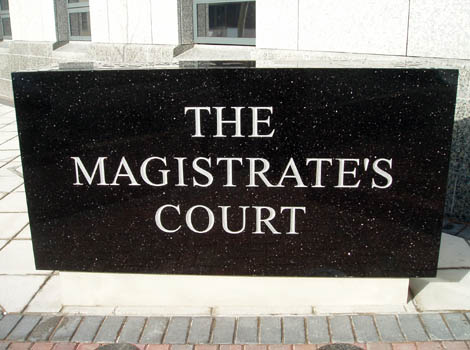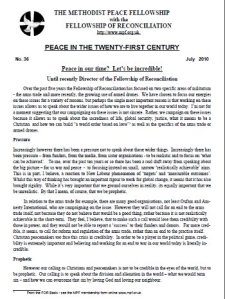“Woe to those who call what is bad, good and what is good, bad.” (Isaiah 5:20)
On Friday 3rd September, along with Susan and Martin, I attended a talk given by Dr Peter Burt of the Nuclear Information Service at St John and St Stephen’s Church in Reading. There I learned about massive investment that was underway to develop the Atomic Weapons Establishment (AWE) at Aldermaston.
As someone who has been involved in peace campaigning for a long time I knew of course that AWE Aldermaston is the main centre for developing and building nuclear warheads in the UK. I knew that the Trident nuclear programme depends on AWE to design, test, build and maintain Britian’s nuclear warheads. I knew that around 200 nuclear warheads were built at the site in the 1990s and that those nuclear weapons continue to be brought back to be tested and maintained.
From Dr Peter Burt however, I learned about the massive upgrade that is being undertaken at the site now and what is expected to happen at AWE over the next few years. I learned about ‘Project Mensa’ the new warhead assembly building. I learned about ‘Pegasus’ the new enriched uranium facility; and I learned about Project Hydrus, the proposed hydrodynamics research facility .
All these massive developments, I believe are in direct contravention of the Nuclear Non-Proliferation Treaty and are also aimed at circumventing the Comprehensive Test Ban Treaty. The modernisation, updating and renewal of nuclear weapon systems I believe is a material breach of nuclear Non-proliferation Treaty (NPT) obligations, particularly the unequivocal undertaking by the nuclear weapon states to “accomplish the total elimination of their nuclear arsenals leading to nuclear disarmament.”
On Monday 6th September along with Susan and Martin – and as part of a Trident Ploughshares week of action – I went to AWE to open the base up for ordinary people to begin the process of disarmament. It seems very clear to me that ordinary people need themselves to begin the process of nuclear disarmament. We can no longer leave it in the hands of politicians or the military whose so-called attempts at disarmament are, at best, shameful, at worst a sham.
As a Christian I believe all are called to be peacemakers. There are many visions of peace in the scriptures but one that resonates with many today in our heavily militarised world is Isaiah’s vision of swords being beaten into ploughshares. And the passage is clear about who is to undertake the task. God does not beat swords into ploughshares. Nor do kings, military commanders of politicians. It is ordinary people who are given this great mission.
On 6th September Susan, Martin and I cut the fence at Aldermaston to create a gateway and called on people to join in the great task of nonviolent peacemaking. Thirty years previously, eight people had entered the King of Prussia nuclear weapon plant in Pennsylvania and undertook the first piece of direct nuclear disarmament and our action on 6th September were inspired by, and rejoiced in, that act of direct disarmament.
Having cut through the fence we attached a sign above saying ‘Open for Disarmament: All Welcome’ and we went through the breach we had created. (A positive breach for disarmament in symbolic contrast to breach of the NPT.) We hung a peace flag on the inner fence, held hands, prayed and sang. Within a couple of minutes police arrived and we were quickly arrested.
And so here we are in court today. We are charged that we damaged the fence, contrary to the Criminal Damage Act and trespassed or a ‘protected nuclear’ site, contrary to SOCPA Act. I have stated that I cut the fence but I believe that it was the right thing to do – that I have lawful excuse in that I was attempting to prevent what I belive to be a crime under international law, and God’s law.
As the court will be well aware S.3 of Criminal Law Act 1967 states that a person may use such force as is reasonable in the circumstances in the prevention of a crime. Ordinary citizens have a right – a duty indeed – to both uphold the law and to work for the common good. What constitutes a crime is the focus of what I want to say here today.
In the recent past I and many others have attempted to challenge the crime of war and preparing for nuclear war in the courts. In all but the rarest of cases these attempts are thwarted. And I know that the Prosecutor is right now reaching for a copy of the House of Lords decision from March 2006, in what is known as ‘R.v Jones’, where following a number of cases (and appeals) relating to peaceful resistance to war preparations, Lord Bingham ruled that
‘the crime against peace / crime of aggression [as it is labelled under international law] is not a crime in domestic law within the meaning of section 3 of the Criminal Law Act 1963’ (See paragraph 31)
In other words, the courts can turn a blind eye to the massive conspiracy to threaten millions of people with extinction through nuclear war, simply by saying: sorry, actually that’s not a crime as we understand crime to be. Development, deployment and no doubt use of nuclear weapons, which cannot be anything but a war crime under international law – as nuclear weapons are incapable of distinguishing between civilians and combatants – will not be criminal according to the British courts.
But that is I’m afraid nonsense. It is of course morally, ethically and legally wrong to plan for and prepare for the indiscriminate murder of millions of people by developing, testing, building and deploying nuclear weapons. That is a crime as any sane and reasonable person would judge.
In the Christian church, a crime against God and the common good is called a sin. The Jesuit priest, Fr Richard McSorley stunned the Church at the height of the cold war by stating simply that it is a sin to build a nuclear weapon. “The taproot of violence in our society today,” he wrote, “is our intent to use nuclear weapons. Once we have agreed to that, all other evil is minor in comparison.
Ignoring the crime of nuclear war preparations, giving legal sanction to what is perhaps the ultimate violence in our world today, undermines any condemnation of violence in our society. And the consequences of that sin are there for all to see, not least in the result of the theft from the poor of the huge amounts of resources that it takes to build these damn things.
Earlier this year I was sentenced to a months’s imprisonment for a similar piece of war resistance. In prison I met and mixed with many people who were among the thousands of current and future victims of the crime of nuclear war preparations. Those who, seeing the acceptability of violence in our society – indeed how violence is sanctified and gloried – had turned to it to as saviour. Imagine their shock when they find that it is a myth. Violence does no save us or deliver us from evil. Just the opposite in fact. I’m sure this courtroom has seen any number of such victims
The three of us went to AWE Aldermaston to say as clearly as we could that the emperor has no clothes. Nuclear weapons – mass violence – will not save us, bring us peace or security. Rather our hope and our salvation lies in love of neighbour and working for the common good by following the way of nonviolence, the way of Christ.
Pretending something that is bad is good, will lead inexorably to trouble, said the prophet Isaiah some 3000 years ago. Pretending that a crime is in fact lawful will similarly lead to trouble. particularly such a heinous crime as the preparation of the mass murder of millions of people. compounding that crime is the criminalization of those who attempt to expose the lie.
I urge the court to recognise the emperor has no clothes. I urge the court to recognise the simple fact that planning and preparing for nuclear war is a crime. I urge the court to uphold the fact that peacemakers have a duty to prevent such a crime and I urge the court to find us not guilty.
Chris Cole, May 2011.



 I spent most of yesterday, the feast of the Epiphany, in Newbury Magistrates Court waiting to plead ‘not guilty’ to charges of criminal damage and criminal trespass following a
I spent most of yesterday, the feast of the Epiphany, in Newbury Magistrates Court waiting to plead ‘not guilty’ to charges of criminal damage and criminal trespass following a 



